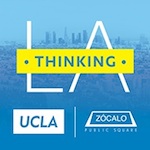
In their never-ending quest to take the politics out of politics, California’s political reformers have a new target: the questionnaires that advocacy groups ask candidates to answer when seeking endorsements. Here’s how John Diaz, editorial page editor of the San Francisco Chronicle, describes them: “Our elected officials are essentially making secret pledges to protect the status quo before they are even sworn into office.”
I’m supposed to be shocked. Instead I’m feeling how Jane Austen might have felt had she ever seen Pride and Prejudice filmed by a pornographer. All the pull and push of attraction and repulsion, all the emotion and calculation, all the complications of class and family and money—all reduced to thrust and groan.
I’ve been part of the endorsement game most of my career: first, as an editorial page editor whose duties included organizing the endorsement process for my newspaper; and later, in 2006, as policy director for Phil Angelides’ campaign for governor, where I oversaw the answering of endorsement questionnaires. The reality, in my experience, is more complex and less smutty than the reformers imagine. The endorsement courtship between groups and candidates, like Austen’s courtships in Georgian England, begins with rituals of mutual discovery. Learning comes before marriage.
Imagine yourself a candidate. Before you can do all the great things you intend to do in office, you have to win an election. And to win a majority of votes you first have to gather enough public attention, volunteers, and money.
Assembling those resources requires you to identify and woo political constituencies. American politics is a story of groups and has been since before 1835, when Alexis de Tocqueville described a nation of joiners in Democracy in America. Affiliating with political organizations is, after voting, the most common way we engage in politics. Political scientist Matt Grossmann, in his fine 2012 book The Not-So-Special Interests, identifies 140 different public constituencies—ethnic, religious, ideological, occupational, economic, professional, social—represented in national politics by more than 1,600 advocacy organizations. Many of these constituencies and organizations, plus dozens more specific to California itself, are active in state politics.
And what do these political groups want out of you, the candidate? They want to communicate their vision of the public interest to you. They want to identify and help you if they think it will advance their cause, and defeat you if they think you oppose their ideas and interests.
The questionnaires that so appall reformers are just one piece—along with personal meetings, speeches, and interviews—of advocates’ efforts to get to know you. The questionnaires are often broad and detailed on policy and intrusive on matters of campaign finance and strategy—in other words, a lot like the questions I used to ask candidates as a journalist. When I ended up on the other side of the table, answering the questionnaires on behalf of a candidate, I was impressed by how seriously advocacy groups take their endorsement responsibility.
The questionnaires also teach the candidate. You learn what politically active citizens care about. Over and over, our campaign learned about issues we’d never heard of. To answer the questionnaires well, we had to dig into the complexity of problems, talk to people whose knowledge we’d not previously tapped, and consider tradeoffs between various solutions.
Because there are always tradeoffs. The biggest thing you learn as a candidate, if you didn’t know it before, is you can’t tell every public group whose support you covet what it wants to hear. In education, the two big teachers unions don’t always agree with each other, let alone with the school administrators, the school boards, the school employees, and the charter schools. If you support the Western States Petroleum Association on fracking, you may find it hard to win over environmental groups.
So you agree with groups where you can, respectfully disagree where you can’t, and try to craft a single message that might resonate across opposing factions—such as Bill Clinton’s declaration that abortion should be safe, legal, and rare. You do so understanding that political groups need you as much as you need them. To any rational advocacy organization (and not all of them are rational), backing a winning candidate who supports half of its agenda is a better choice than supporting a true believer who’s a certain loser.
If this process is so benign, I can hear the reformers ask, why are the questionnaires secret? The answer: No candidate trusts that a questionnaire is secret. People in politics talk, cut and paste (and forward) e-mails, and even send faxes. You have to assume that anything you put in a questionnaire can, and might, end up in the papers or an opponent’s attack ads. That’s particularly true of an advocacy organization’s questionnaire any time there’s doubt about who will get the endorsement. If there’s a real contest, it means there are likely supporters of your opponent within that advocacy group, people who would be happy to use your words against you if given the chance.
Even more naïve than calling endorsement questionnaires “secret” is considering them binding “pledges.” Perhaps 23 years of hearing candidates say one thing in endorsement interviews, then do the opposite, has made me cynical, but candidate pledges deserve about the same weight as a teenage boy’s answer to the question, “Will you respect me in the morning?”
What would change if reformers were to get their way and candidates were required to disclose their answers to advocacy groups’ endorsement questions? The most likely result is the one that has followed from disclosure requirements in public records laws: less communication would be committed to the page. The written questionnaires would disappear or be reduced to pap, leaving the courtship to what the reformers of the last century called “smoke-filled rooms.” And with them would disappear a lot of learning.
In a state so big, with so many tricky economic and social puzzles, with so few institutions and rituals to tie us together, that’s one more “reform” victory California can do without.





Send A Letter To the Editors